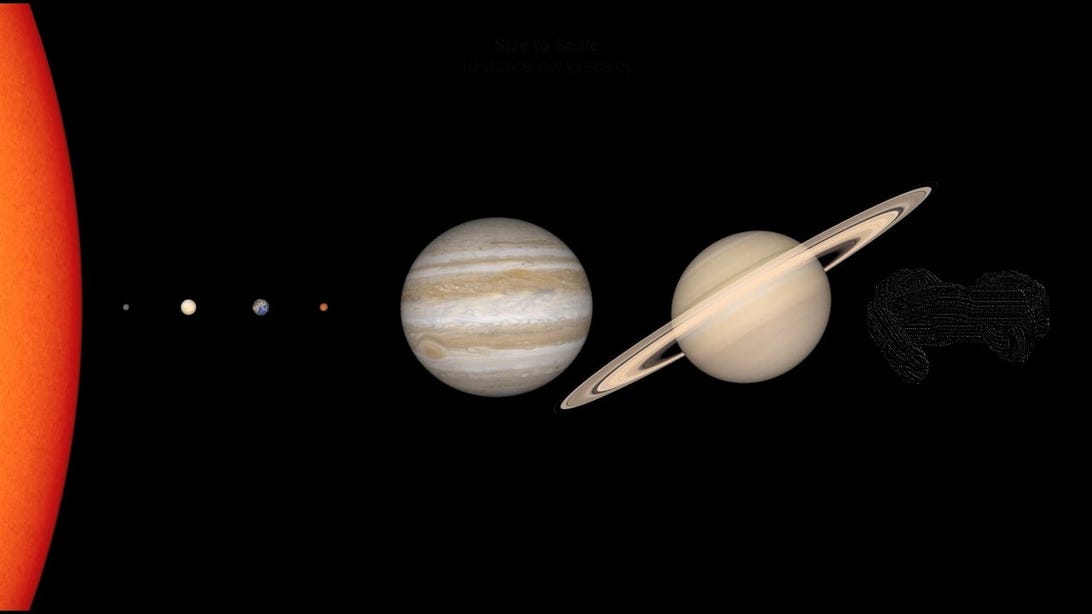There’s Still Time to See Jupiter, Saturn, Mars and Venus Form a Rare Sight

They should all be visible this month.
NASA
The pre-dawn hours are bringing a planet-spotting party for skywatchers this week. Jupiter, Venus, Mars and Saturn will be visible in a diagonal line, joined by a waning crescent moon.
Look for this cosmic gang in the east-southeast sky before dawn. You can typically distinguish planets from stars as they are brighter and twinkle less. Jupiter will be the lowest and furthest to the left, followed by Venus, Mars and Saturn tracing an invisible line moving up and to the right.
For help spotting planets, an app like Stellarium can be quite helpful.
A fifth planet is also visible in the night sky but not at the same time. Mercury can be seen in the evening but will set before the others arise in the morning.
The quartet of worlds will re-appear each morning for the rest of the month as the moon shrinks in the sky. By the end of April, we’ll see this grinning moon slide beneath the lineup of planets on successive nights. It will underline Saturn on April 25, Mars the following night, and both Jupiter and Venus on April 27.
Venus and Jupiter will continue to approach one another until they will appear nearly side-by-side in the sky on April 30. In fact, it’s the closest they’ve appeared since 2016 and likely will be easier to see this time around due to more favorable positioning in relation to the emerging morning sun.
Of course, the planets are in no actual danger of colliding, as they’re really millions of miles apart. They just appear close from our perspective on Earth. If Venus were to ever come anywhere near Jupiter, it would probably be pulled in by the gas giant’s gravity and end up getting swallowed by it. That is, if it isn’t destroyed as it gets pelted by Jupiter’s dozens of moons first.
That would provide for a truly rare and terrifying show in the night sky if it ever did happen.
Read More:There’s Still Time to See Jupiter, Saturn, Mars and Venus Form a Rare Sight
